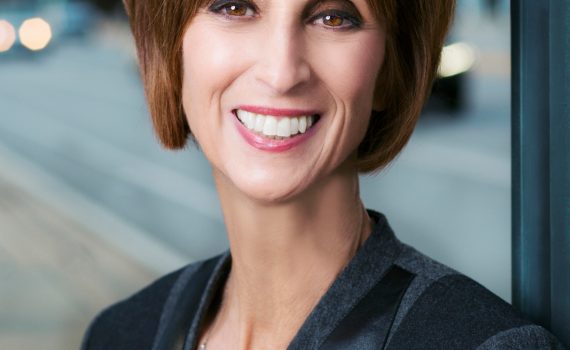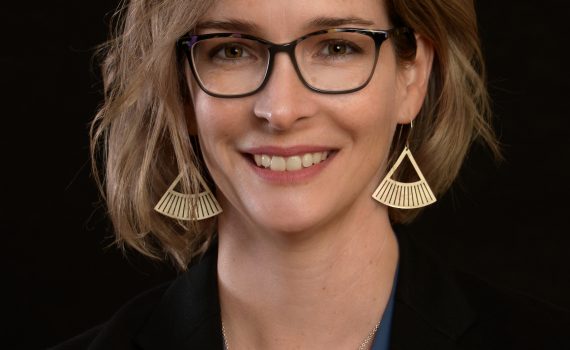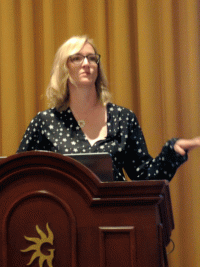
Episode 009: Jennifer Kahnweiler–Introvert Champions
Category:introversion,Introverted Leadership,introverts,Leadership,PodcastPodcast: Play in new window | Download
Subscribe: Spotify | Amazon Music | iHeartRadio | Podchaser | TuneIn | Deezer | RSS
Episode 009 Show Notes: Jennifer Kahnweiler
Introduction

Key concepts
- An extrovert championing introverts
- The four Ps of introverted leadership
- The rise of the introverts
Quotable
Trends-on a positive note, extroverts are realizing it is a spectrum and that we all have introversion within us.
Once I started speaking about introverts and introverted leadership, I just had so many people start talking to me about how important it was for them to hear the message that they could be leaders.–Ben
We want them to understand that both groups [extroverts and introverts] have things to offer in the workplace and it’s important to tap into that group that’s usually quiet.
If [extroverts] are not hearing from 40 to 60 percent of their team and really engaging those individuals [introverts], then they are missing out.
Resources or Products Mentioned in this Episode
- JenniferKahnweiler.com
- NYSERNet
- The Introverted Leader: Drawing on Your Quiet Strength, 2nd ed.
- The Genius of Opposites: How Introverts and Extroverts Achieve Extraordinary Results Together
Links
- Follow Hope for the Introvert on Twitter
- Like my page on Facebook
- Support me on Patreon
- Get swag for Hope for the Introvert and Introverted Leadership at Zazzle
Transcript
Ben: Welcome to Hope for the Introvert. Our special guest today is Jennifer Kahnweiler. Jennifer is a well known author about introverts and introverted leadership. She’s a certified speaking professional and a global speaker, and she’s been hailed as a Champion for Introverts. Her best bestselling books are The Introverted Leader, Quiet Influence, and The Genius of Opposites. They’ve been translated into 16 languages. Jennifer helps organizations harness the power of introverts. She’s been a learning and development professional and speaker at leading organizations like General Electric, Freddie Mac, NASA, Turner Broadcasting, the US Centers for Disease Control, and the American Management Association. I had the pleasure of meeting Jennifer at the October NYSERNet conference in Syracuse, New York, where she was the keynote speaker and spoke about The Genius of Opposites.
Ben: Hi Jennifer. Thanks for joining us today.
Jennifer: Hey Ben. It’s great to be on your podcast. Congratulations on this.
Ben: Well, thank you. I appreciate that. So I know we’re going to talk about your book today, but I wanted to ask you some questions as well. It’s really interesting because I think many of us assume that someone who’s interested in working on introverted leadership and writing about introverts would be an introvert themselves, but you’re actually an extrovert. Could you talk a little bit about your background and what drew your interest to the subject?
Jennifer: Yes, you’re absolutely right that most people do assume that I’m introverted and they reach out to me with that thought in mind. And I consider myself to be champion of introverts. I was working in the companies that you mentioned in the intro for a number of years and also had my own consulting and coaching practices through that cycle, and I kept coming up with the same theme and working with individuals who were trying to advance their careers or navigate the organization. And that was that they were frustrated as introverts. I had identified them that way because I was aware of the different personality types from my trainings as a counselor and as a coach and an OG consultant. I had that awareness that many more people have today. But back then it wasn’t so common when I started out my career. And so I kept coming up with the same–hearing about the same challenges and observing that introverts were hitting a wall oftentimes with promotions, with opportunities to be on cool projects with not being heard in meetings. And it really concerned me and I was coaching people individually and doing a lot of training in leadership classes, when it occurred to me that I needed to provide more resources. I looked for a book on the topic and had a very difficult time finding anything. And like a lot of authors will say they write the book that they want to read. So that’s really how it happened for me professionally.
[bctt tweet=”I observed that introverts were hitting a wall oftentimes with promotions, with opportunities to be on cool projects with not being heard in meetings.–@jennkahnweiler” username=”hopeintrovert”]
Ben: So one thing that you mentioned at the conference, your husband is an introvert, right?
Jennifer: Oh yes. No doubt about that. If you met him, you would have no doubt, Bill is definitely an introvert. I say that, but he presents, you know, he’s got social skills and that’s one thing that we should probably implode that myth that introverts don’t, like you have, have great social interaction skills. But my first insight as I was sharing at the conference when I’m early on in our relationship and after we got married even, I was perplexed because we would be with people then and you could probably relate to this, right? That then afterwards in the car on the ride home, there was total silence. Crickets as they say, you know, and I couldn’t get him to talk about the evening because as I knew as an extrovert experiences make sense for extroverts as they verbalize them. And so there was a disconnect there because he, all he wanted to do was be silent and go within himself so he could decompress from the evening. So, uh, yeah, absolutely. He’s been my– I laugh about the day. We both laugh about him being the case study for a lot of my work. I’ll check with him all the time. And sometimes he even says, “Jennifer, you need to read the book to remind yourself” because as an extrovert, we forget sometimes to respect the silence of the quiet.
Jennifer: Didn’t you also say you have an extrovert in your family as well?
Ben: I’m actually the only introvert in my nuclear family. My wife is an ENFJ, which I believe when we were talking that’s what you are also. And she’s done a lot of communicating, writing, training-type things. Both my kids were extroverts and they all process externally. So as an introvert in the household, I’m quite happy to be quiet and engrossed in whatever I’m watching or reading, and they’re bored and they want to go out and do something because that external stimulation is so important to them. I found it absolutely fascinating that you were writing about this from an extrovert’s point of view. And I think that’s really important, because I know that some of the conversations I have with extroverts, there’s the, well, why? What’s all this focus on introverts? Why do you need to write about introverts? Extroverts are important people too.
Jennifer: Exactly, And I just will go back on something you said. I tried to represent the view of an introvert in all of my writing. I’ve written four books actually with the second edition of The Introverted Leader just coming out. And what I really try to do, Ben, is to put a journalist hat on and I do my research. It’s all qualitative research and I look back on my trainings and I gather notes from all my interviews that I do in my questionnaires, but it really comes down to me trying to tell the story, not so much from the extrovert wearing the extrovert hat, but of course that’s lens is always going to be there, so I try to check myself by surrounding myself with editors and my team who are mostly introverted, and as I mentioned, my spouse and I try to run everything by them, but I’ll say that extroverts really never are going to know, just like introverts don’t really know. what it’s like to sit in the shoes of a real introvert and vice versa. I think it’s difficult to imagine because for extroverts, it’s just not, as you say, sitting alone for any extended period of time can really be deflating rather than energizing, which it is for the introvert. So I think I tried to tell the story but always know that, I’m never going to know exactly what it’s like.
[bctt tweet=”For extroverts, sitting alone for any extended period of time can really be deflating rather than energizing @JennKahnweiler” username=”hopeintrovert”]
Ben: Yeah, I think that makes a lot of sense. Somewhere I came across the phrase that extroverts are bored by themselves in both senses of the word. So it was pretty funny.
Jennifer: That statement, bored by themselves. Yeah. No, no, no. I think one thing that I’ll say Ben, is we’ve been talking about introverts now for 10 years. It started the rebel–as I call it, the rise of the introverts. There’s been so much more written about it. As you say, people are talking about it, and I think one of the positives in addition to more awareness, which to me is absolutely critical, especially when you think about children who grew up years ago feeling different and becoming more what we might call shy, because there wasn’t an acceptance in our extroverted-type society for introverts to really own who they were. But we’re seeing more of that. And the other trend that we’re seeing now–on a positive note–is that extroverts, Ben, I think are realizing it is a spectrum and that we all have introversion within us. And so I think we’re seeing such a growth in the meditation movement and Yoga and Quiet, just people wanting quiet as a reaction to, against the digital overload. Um, so I am seeing extroverts say to me, “Oh, you know, I did take some time and it, and it was really great for me to plan and to just get focused.” I don’t know if you’ve observed that as well.
[bctt tweet=”Over the last ten years, we’re seeing the rise of the introverts. @JennKahnweiler” username=”hopeintrovert”]
[bctt tweet=”Trends-on a positive note, extroverts are realizing it is a spectrum and that we all have introversion within us. @JennKahnweiler ” username=”hopeintrovert”]
Ben: I’ve seen some of it. I feel like I am far from an activist personality, but it feels like that once I started speaking about introverts and introverted leadership, I just had so many people start talking to me about how important it was for them to hear the message that they could be leaders. And I think most of the extroverts that I know, they know me pretty well at this point in time and they know in some ways I’m a strong advocate for introverts. It’s interesting because one of the things I wanted to ask you about was what the reception has been by extroverts. The extroverts I know that–there are a few who have teasingly asked me why am I just talking about introverts and because a lot of the leadership things go for everyone, but one thing I was really curious about, and you spoke at the NYSERNET conference was The Genius of Opposites, where you’re essentially trying to get probably both sides–if we want to call it sides–so it’s really a spectrum. We want them to understand that both groups have things to offer in the workplace and it’s important to tap into that group that’s usually quiet. I was curious what the reception has been, especially by extroverts or by introverts–whether that’s really too generalized?
[bctt tweet=”We want them to understand that both groups (extroverts and introverts) have things to offer in the workplace and it’s important to tap into that group that’s usually quiet.” username=”hopeintrovert”]
[bctt tweet=”How important it is for introverts to hear the message that they could be leaders. @benwoelk” username=”hopeintrovert”]
Jennifer: That’s interesting you’re asking that question. I only have very anecdotal data on this, but I still think we have a long way to go for extroverts, Ben, to think that there is a problem. Like just as you were referring to people say–kind of giving you–making fun of it sort of in a in a kind, but in a joking way. (I’m not sure that’s all kind!” I think people make change in my opinion and my experience when there is pain, when there is a discomfort, and on the positive side, I guess I’m–you can call me a Pollyanna. I do see things from–try to look at the glass more half full, and I’ll give both sides of it. I think on the glass half-full side, I’m seeing more and more leaders and managers who are extroverts recognize that introversion is a part of a diversity issue.
Jennifer: And so if they are not hearing from 40 to 60 percent of their team and really engaging those individuals, then they are missing out. Not just as a nice to have, but it’s a must have. They need those ideas. They need that innovation. It affects the bottom line. Let’s face it, from a gets–and their results are less. So I think the ones that are starting to see that and pull back the curtain and say, yeah, we need to look at how do we deal with introverts. I’m seeing more of that, and that’s why I’m busy speaking, and that’s why we’re doing more work in companies, but on the other side of it, there are still many extroverts who think that introverts should just get it together and just act like they are, and they oftentimes will say to an introverted leader, and I wonder if you’ve heard this, “Well, no, no, you’re really not an introvert. I mean, no, you’re definitely not. I mean, you’re not showing any of those characteristics.”? Have you ever heard that from people yourself?
[bctt tweet=”If extroverts are not hearing from 40 to 60 percent of their team and really engaging those individuals (introverts), then they are missing out. @JennKahnweiler” username=”hopeintrovert”]
Ben: When I’m in a conference framework? No one would ever guess that I’m an introvert.
Jennifer: There you go!
Ben: I’ve done interviews with people and we’ve talked about introverted leadership, and then when they’ve met me at a conference, they’re telling me, “You’re crazy! You’re not an introvert!”, but I draw back to the “how do I recharge?” and I can be very “on.” I can be very social. I still don’t like introducing myself to people and just going up and talking to people. I find that to be a challenge, but there’s some situations where I know I need to be doing that, so I do it. I play whatever role, but I feel like–paying the price might be a bit strong, but I definitely will need several days of recharge time after going to a conference where I’m on all the time.
Ben: It’s a spectrum. If it was not a spectrum, none of this would make any sense, but I feel like yes, I am very extroverted for an introvert at this point in my life. But I also know that looking back many years ago when we first got married, my wife was concerned whether I’d ever get up and talk to anyone and ever be social at all. And of course with her being an extrovert, the social was very, very important for her. So I have changed or grown a lot over the years and I think I’ve learned to accept that I need to guard my energy. So I’m saying that, but I don’t guard my energy at these conferences at all, and what I find is that I need to recoup the energy afterwards, but I’m also recognizing that I think part of it is I feel like it’s always on becoming a bit of a spokesperson for the introverts in my professions and I think that makes a difference as well.
Jennifer: And I applaud you for that. We need more people like you who are advocates throughout every industry in every part of the world. And I really liked what you said about how you’ve evolved and developed, and I think you think of it like a muscle and you strengthen those skills. But back to people discounting the fact that you’re an introvert, I think people need to push back and say, “No, I’m really introverted. I’m using those skills,” and the unwritten texts that I would hope extroverts pick up is the same for them. You guys need to be quiet and you’re more effective when extroverts, when we listen, when we pause, when we take time to prepare; all of those strengths and skills that introverts bring to the table and that I encourage the introverts to amplify.
[bctt tweet=”We need more introverts who are advocates throughout every industry in every part of the world. @JennKahnweiler” username=”hopeintrovert”]
Jennifer: So take your example of the social networking–that I think I may have mentioned in this talk that I gave–that it’s probably one of the biggest challenges that introverts talk about in addition to public speaking and being in meetings, socializing and networking. And so, as an example of that, you take preparation, which is your sweet spot or one of them, reflecting and thinking about the conference you’re going to, to use your example. Think, “Okay, let me look at the schedule. First of all, let me guard my time. When can I take breaks? Okay. I planned it out.” Things might change. Like I think at the conference we were at they changed the room or they changed the time. Just be aware that things could change, but that you plan for that. You plan for those and you protect those times because otherwise as you said, you will, you really will deflate.
Jennifer: And then the other thing related to the networking is you planned how, what–maybe some icebreakers–things that you’re going to say, like, “What’s been keeping you busy lately?” And figure out how you’re going to follow up with people so that you make those conferences worth it to you and you build connections and relationships. I just went to one and I’m trying to think about how do I stay connected with these people in this group that I met? It was so dynamic. So how do we take that forward? While an introvert would reflect on that, right? And they would think about, okay, what’s the strategy, rather than moving to the next conference or the next stimuli, right before doing that. So I have to tap into my introverted side, and so the thing I came up with this morning is, “Okay. Let me propose to the group that we put together like a WhatsApp texting group so that we can stay connected.” So I think both styles have so many strengths that we bring to the table and we just need to get in touch with those, own them, and then leverage them.
Ben: Yeah. I think one other thing about the conferences, I tend to go to the same ones year after year and I know people now, so I think that gives me a comfort level because part of it is coming together and seeing our large dysfunctional family [Jennifer laughing]. But at least for all–most of us are friends, and you get that sense of belonging and I’m comfortable. I know these people. I know they’re not judging me. It’s harder when I go to something I’ve never been to before and I don’t know anyone there, but something else that you mentioned that I didn’t start doing until a couple of years ago was how do you really continue that conference experience in the sense of how do you continue those relationships? How do you build on the relationships? And the first time I spoke by myself on introverted leadership a couple of years ago, one of the things I did coming out of it after I had numerous introverts come talk to me after my presentation, which was the opening presentation the first day of the conference, or one of the opening presentations that day, I set up an online community using Slack as a tool. And we have since built that community into–there are over 200 people signed up on it.
[bctt tweet=”How do you really continue that conference experience in the sense of how do you continue those relationships? @benwoelk” username=”hopeintrovert”]
Jennifer: Wow.
Ben: Not all introverts. We do let some extroverts in–on good behavior.
Jennifer: Well maybe you’ll vouch for me and put me in and recommend me to it. I’d love to be involved. [Laughing]
Ben: Oh absolutely. But it’s been great. It’s not like everybody’s chatty all the time, but it gives us an opportunity to discuss issues that concern some of us. And often we’ll find a book that we’re all interested in and start kind of working through that together and discussing it. So it’s been great in terms of actually continuing the relationships.
Jennifer: Wonderful. Wonderful. And you’re bringing up another strength–or two of them–of introverted leaders, and that is writing and also a thoughtful use of technology, and so I love that you’re doing that. So I’d love to have that link and kind of weigh in there and listen and learn from your community. I really applaud you for that.
Ben: Well, thank you. That would be awesome. So I did want to go back to your second edition of your book that’s just come out and your reasons for writing it, what you’re hoping readers will take away from it, and then maybe what are the key factors in it that you see for introverts who want to be leaders or who are already in leadership.
Jennifer: Okay. Wonderful. Well I thank you for asking about that. It is called The Introverted Leader: Building On Your Quiet Strength, and I’m very fortunate to feel grateful that it seems to be doing quite well and I’m just trying to get it into the hands of a lot of people so that we can have a–it’s basically based–it comes from the lessons that I’ve learned from my work with introverted leaders and from all different functions and industries, people, everybody have endorsed it from Arianna Huffington, to Adam Grant, Dan Pink, (all introverts), Beverly Tatum. And they all reinforce the lessons that were shared there.
Jennifer: And I built on the model that I came up with over 10 years ago, that we’ve now had a chance to really get into the hands of thousands of people. And that’s the Four Ps, which consists of what introverted leaders do. And they Prepare. They are Present. They Push, and they Practice, and they do that in very intentional ways. The way you were describing with your group and that you’ve got after the conference. And I have a lot of tools and techniques, you know, I’m all about application. I’ve always been. There’s not a whole lot of theory in there, but it’s how do you deliver a powerful presentation? How do you enter that networking event so you’re effective? And again, it’s not lessons that I’m necessarily sharing. Of course, I’m taking from my experience in this field for so many years, but it really does come–and all the examples come from–introverts who have been using these approaches and techniques.
Jennifer: I think it’s pretty easy to go through. It is based on–you can take a quiz that’s on my website at JenniferKahnweiler.com. It’s also in the book, and it tells you what area perhaps you need to work on a little bit more that’s going to be useful to you and your current and future role. And then it also says what you’re doing well and how you want to build on that. I think you have a copy of the book. It’s very practical and I’m very proud of it from just having worked–when you write a book, you’re not sure how it’s going to land and you just want to get people to read it and use it and find it useful.
Ben: I think that’s really great. I understand the uncertainty of how things are going to be received. I had the same issue with the whole doing-a-podcast thing.
Jennifer: And I applaud you for that. [Laughing] You went in there. You’re not expecting to be perfect. You’re learning as you go and I think that’s fantastic.
Ben: Yeah. And it’s funny because I had no idea if there’d be any listeners or not, and I had ideas of what I was going to do to host the content and all of that sort of thing. And then I launched, and, “Oh my gosh, I’ve got listeners!”, and had to make some changes right away to make sure the content would always be accessible to them. But it’s funny. So you mentioned the four Ps as kind of the crux of the book in a lot of ways, in terms of introverts recognizing that those are their strengths, and that’s one of the things I found also, is reminding introverts that they have strengths, and that not everything is a weakness or shortcoming as they may have perceived it to be, seems to be an absolutely key piece of this. One thing I’ve mentioned in some of my other writings and talking is just this whole–sometimes, at least for me, I kind of want the external validation that yes, I can do these things.
Ben: I don’t know that that’s typical for an introvert, though I suspect some of it is, because we think and dwell and dwell and maybe overthink things some. But for me, little things which just seem funny on the face of it. I’ve been doing technical communication and then information security work for decades now. But I didn’t have a degree in anything like that, and I was actually a History doctoral student of all things and that wasn’t practical enough for me. So I appreciate your emphasis on the practical, but I found that I ended up seeking external certifications just so I can say, “Hey, I’ve got this degree in this now. I’m a Certified Information Systems Security Professional.” But for me, it was more proving–I think in ways it was proving to myself that I could do these things.
Ben: So I do think that building confidence in introverts and helping them understand their strengths and the areas that they can really leverage and focus on, I think is a huge contribution, because at least from what I’ve found, that seems to be the key. You talk to people and, “I can’t be a leader.” “I have no leadership qualities.” “I’m not this charismatic leader who stands in front of everyone and tells everyone what to do.” “I don’t like being the public face of something!” To actually be able to come to that group of people and explain that these are your strengths. Being an introvert is not a handicap. I really see it as a strength in a lot of ways. (Although our business schools aren’t there at this point in time.) But I think this whole giving them the confidence they need and helping them understand that they have the innate skills, and giving them the tools to leverage those, is a really key contribution.
[bctt tweet=”Building confidence in introverts and helping them understand their strengths and the areas that they can really leverage and focus on, I think is a huge contribution. @benwoelk” username=”hopeintrovert”]
Jennifer: Yes, Ben. I agree with that. And two reactions to what you just shared: the confidence factor you mentioned, giving them the confidence. I think it really does come from within and I think that we can be the spark. People who are sharing this message and I guess we’re the champions, the advocates, can really create awareness so that people do increase their confidence. And just one quick image I’d like to share. When I started doing my talks, I would ask people in the audience, and they’re primarily introverted audiences. I’d say what are the characteristics and strengths of introverts? And there’d be a little silence and that’s okay. I’ve learned to live with silence and then slowly but surely, there’d be like a trickle, “listeners,” “we observe,” “we prepare”, “we’re analytical.” It goes on and on.
Jennifer: And as those words would come out into the room, they would be voiced in the room. I’d look around (no matter how large the group) and I would literally see people change their body language. They would sit up a little straighter in their chairs. I even saw some quizzical looks with smiles, and it was very reinforcing to me, because the body and the face don’t lie, right? They say what people are feeling, and that has been replicated hundreds, if not thousands of times in the last 10 years. So I think I try to keep that in mind and if we could do that around the world, we’d have people sitting up straighter in their chairs and owning this, that definitely in my belief is related to an increase in confidence and then performance.
Ben: Yeah. I think it’s the key. It’s providing inspiration and that is such a cool story that you’re actually saying that you’re seeing the change of body language. You don’t get to do that when you’re presenting over the web or speaking through a podcast.
Jennifer: Well, let me–I’ll push back a little. I do a lot of online classes and I actually, a lot of my introverted clients will say that is their preferred method of learning, or one of the key… And you may invalidate that or not, but when people get on the phone, when you do let them put their voice in the room, you hear it in their voice, Ben, you hear it in their voice, and as you know with your Slack community, there is a lot of engagement on the chats. So you get a lot of activity–rather than in some online classes you’ve probably been involved in, too, where it’s like nothing. You just have the instructor teaching. There’s a lot of engagement. So, yeah, I think that all those platforms are our ways to also tap into the enthusiasm.
Ben: I think that’s really great. Jennifer. This has been a great conversation. I know you mentioned that you had been working on another book and I’m curious about the research that you’re doing and where that’s going.
Jennifer: Yes. Ben, thank you for asking about my new research, which I’m so excited about. We are going to be working now in moving into a new direction with the whole introvert conversation, and that is taking a look at how do we shift the culture–the workplace culture, where it’s already happening, some, but we want to understand what companies are doing to create an environment that embraces and supports introverts. And by the way, when you do that, in my belief, you’re also supporting the entire community. At this point I’m going to just put this out to your audience, too, “What sort of best practices have you seen in terms of your workplace design in terms of some of the management practices and leadership practices that you feel are supportive of introverts? How about with meetings or how about with hiring?”, all of the parts that make that make up the whole of working in an organization. We are seeing best practices emerge and bubble up, but I want to highlight those, and I want to help people to replicate that as change agents in their own cultures.
Jennifer: So I’m very excited and I can’t wait to do another podcast with you to share with you some of the results I’m getting. We’re doing a survey coming up in the next few weeks and I’ll be sure to share that with you and could with your listeners as well.
Ben: Thank you. I really appreciate that and I actually really appreciate your support of the podcast. Like I said, it’s been a bit of an experiment and a bit of a new journey for me and it’s been exciting, but there’s obviously some concerns in trepidation to start with with it.
Jennifer: Well, you’re a risk taker. You took, you took a risk and I would push back and say it’s not an experiment and you’ve got a podcast now, Ben. It’s needed and let’s get the word out for sure. I’d love to hear from listeners. People can reach me through my website at JenniferKahnweiler.com. Just Google me and you’ll find me, and I’d love to connect on social media. I’m active on Linkedin and instagram and would love to just, include people in the conversation and expand this movement. So thank you so much for the work you’re doing.
Ben: Thank you Jennifer for joining us today. I’ve really enjoyed the conversation. I do look forward to having you back on in hearing about this research. It’s going to be really interesting.
Extras

Ben and Jennifer at the NYSERNet Conference 2018.



 Prof. Kirk St. Amant and Ben Woelk discuss what it’s like to be an introvert in the classroom, how we engage students, and the role of popular culture in teaching. We also discuss how we adapt to the absence of in-person feedback mechanisms in webinars and online courses.
Prof. Kirk St. Amant and Ben Woelk discuss what it’s like to be an introvert in the classroom, how we engage students, and the role of popular culture in teaching. We also discuss how we adapt to the absence of in-person feedback mechanisms in webinars and online courses.
 Introduction
Introduction







